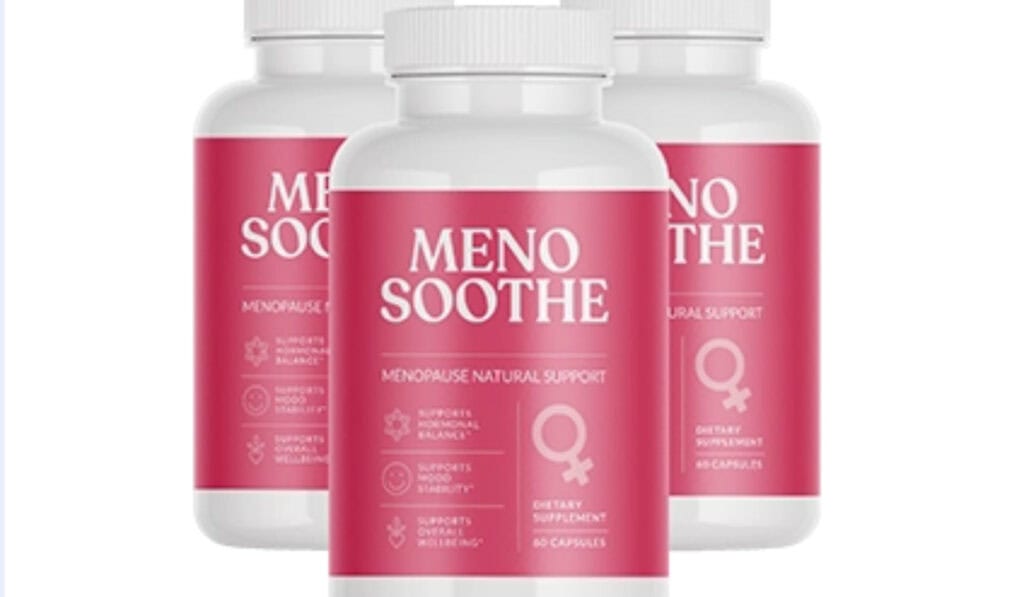What to Eat & Avoid for Optimal Health
During menopause, your body goes through significant changes, and your diet plays a crucial role in managing menopausal symptoms. A healthy diet can help reduce vasomotor symptoms, improve gut health, and assist in maintaining a healthy weight. Incorporating nuts and seeds, like sesame seeds and sweet potatoes, into your eating habits can help manage hormonal imbalances and lower cortisol levels.
Eating a variety of foods rich in vitamins and minerals supports heart health and can reduce mood swings. It’s important to focus on foods that stabilize your blood sugar and support overall well-being. Avoiding refined carbohydrates and considering hormone replacement therapy as a supplementary measure can also be beneficial. However, always consult with a healthcare provider before making any significant changes to your diet or health regimen.
Your diet can be a powerful tool in navigating the challenges of menopause. Emphasizing fruits, vegetables, whole grains, and healthy fats can provide essential nutrients needed during this transitional period. Remember, what works for one person may not work for another, so it’s crucial to listen to your body and adjust your diet according to your unique needs and experiences.
Lastly, staying hydrated and engaging in regular physical activity complement a balanced diet and contribute to overall health during menopause. By making informed choices about what to eat and what to avoid, you can ease the transition and improve your quality of life during and after menopause.
Understanding Menopause and Its Dietary Impacts
Menopause marks a significant transition in a woman’s life, characterized by the cessation of menstrual cycles due to a decline in sex hormones. This hormonal shift can affect body composition, increasing the risk of obesity, metabolic syndrome, and cardiovascular risk. Adjusting your diet to include more unsaturated fats and reducing alcohol consumption can mitigate these risks.
Regular exercise and a diet rich in vitamins and minerals support blood vessels’ health, reduce the risk of fractures, and maintain bone mineral density. The menopausal transition also heightens the risk of breast cancer, making dietary choices more crucial than ever. By focusing on nutrient-dense foods, you can navigate this transition more smoothly and lower your health risks.
Recognizing the Signs and Symptoms
As you enter menopause, you might notice several changes in your body. Hot flashes, night sweats, and mood fluctuations are common signs. These symptoms can be challenging, but adjusting your diet can help. Including more plant-based foods in your meals provides essential nutrients that can ease these discomforts.
Plant-based foods not only offer vitamins and minerals but also support overall well-being during menopause. Making these dietary changes can significantly impact how your body copes with the transition, helping you manage symptoms more effectively and maintain a higher quality of life.
The Role of Diet in Managing Menopause
A balanced diet rich in vitamins and minerals, and essential nutrients plays a pivotal role in managing menopause. Foods that support gut microbiota, like those containing egg yolks, can be particularly beneficial during perimenopause and menopause. These dietary choices help in absorbing essential nutrients more efficiently.
Moreover, focusing on gut health through your diet can alleviate some menopausal symptoms. The gut microbiota influences the body’s hormonal balance, and by nourishing it with the right foods, you can support your body through the changes it undergoes during this time. A thoughtful approach to your diet can make a significant difference in how you experience menopause.
Top Foods to Incorporate for Hormonal Balance
Incorporating specific foods into your diet can enhance hormone balance, stabilize blood sugar levels, and support the gut microbiome. Foods to eat for hormonal balance include brown rice, green leafy vegetables, and cruciferous vegetables. These food sources are rich in vitamins and minerals essential for hormone production and maintaining insulin sensitivity. Additionally, they support menstrual cycles and promote a healthy gut bacteria balance, further influencing hormone regulation.
1. Embrace Phytoestrogen-Rich Foods
Phytoestrogen-rich foods, like soy and flaxseeds, play a crucial role in managing weight gain and stabilizing blood sugar levels during menopause. These foods mimic the effects of estrogen in the body, helping to balance hormones naturally. Integrating these foods into your diet can offer relief from menopausal symptoms and support overall health.
By focusing on these natural food sources, you can navigate the hormonal fluctuations of menopause more smoothly. Remember, maintaining a balanced diet that includes a variety of phytoestrogen-rich foods can help manage the metabolic changes that come with menopause, reducing the risk of weight gain and supporting blood sugar control.
2. Fruits and Vegetables: Your Hormonal Balance Allies
Fruits and vegetables are powerful allies in maintaining hormonal balance during menopause. They are not only rich in vitamins and minerals but also serve as excellent sources of calcium, which is crucial for bone health. Including a variety of fruits and vegetables in your diet can support your body’s nutritional needs and help manage menopausal symptoms.
The Importance of Cruciferous Vegetables
Cruciferous vegetables, such as broccoli and kale, are especially beneficial during menopause. These vegetables contain compounds that support hormone balance and can help in detoxifying the body. Their high nutrient content supports overall health, making them a vital part of a menopausal diet.
Including these vegetables in your meals can offer additional health benefits, such as reduced risk of certain cancers and improved heart health. Their versatility in cooking makes them easy to incorporate into your daily diet, providing a simple yet effective way to support your body through menopause.
3. Eat Quality Protein for Sustained Energy
Quality protein sources are essential for sustained energy throughout the day. Foods such as lean meats, fish, and legumes provide the amino acids your body needs to function properly. These proteins can help in maintaining muscle mass, which is often a concern during menopause.
Including a variety of protein sources in your diet ensures that you get a broad spectrum of essential nutrients. This dietary strategy not only supports your energy levels but also contributes to overall health and well-being during the menopausal transition.
4. Healthy Fats Are Your Friends
Healthy fats, including those found in avocados, olive oil, and chia seeds, are beneficial for menopausal women. These fats support hormone production and can help in reducing inflammation in the body. Incorporating healthy fats into your diet can also improve heart health and cognitive function.
Chia seeds, in particular, are a versatile source of healthy fats. They can be added to smoothies, yogurts, or salads, making it easy to include them in your daily meals. Their high fiber content also supports gut health, which is crucial for overall hormonal balance.
5. The Benefits of Whole Grains
Whole grains offer numerous health benefits, including improved digestion and reduced risk of chronic diseases. Foods such as quinoa, brown rice, and whole wheat contain fiber, vitamins, and minerals essential for maintaining hormonal balance and overall health during menopause.
Incorporating whole grains into your diet can also help in managing blood sugar levels and supporting heart health. Their nutrient density makes them an important part of a balanced diet, providing the energy and nutrition your body needs to navigate the challenges of menopause.
Foods and Habits to Avoid During Menopause
Certain foods and drinks can exacerbate menopausal symptoms and should be limited or avoided. Processed foods, high in sugar and unhealthy fats, can contribute to weight gain and hormonal imbalances. Reducing caffeine and alcohol intake can also help in managing symptoms such as hot flashes and mood swings.
Adopting healthier eating habits during menopause is not just about adding beneficial foods but also about avoiding those that can hinder your progress. Paying attention to how different foods and drinks affect your body can guide you in making choices that support your health and well-being during this transition.
1. Processed Foods and Their Hidden Dangers
Processed foods are packed with additives and high levels of sugar and salt, which can lead to unwanted weight gain. This weight gain is not just about appearance; it affects your health by increasing body fat, which can interfere with hormone balance. When you eat a lot of processed foods, your blood sugar levels can go on a roller coaster, making your body store more fat and making it harder to manage menopause symptoms.
Furthermore, these foods can contribute to inflammation in the body, worsening menopausal symptoms such as hot flashes and mood swings. By reducing your intake of processed foods, you can better manage your weight and keep your blood sugar levels stable, helping to alleviate some of the discomforts associated with menopause.
2. Reducing Caffeine and Alcohol Intake
Cutting down on caffeine and alcohol can have a significant impact on how you experience menopause. These substances can affect your sleep patterns, leading to sleep disturbances. A good night’s sleep is crucial for managing stress and maintaining overall health, especially during menopause. Caffeine and alcohol can also aggravate hot flashes and night sweats, making them more frequent or more intense.
By reducing your intake of these substances, you can improve your sleep quality and potentially reduce the frequency of hot flashes and night sweats. This adjustment in your diet can make a big difference in how you feel every day, helping you to navigate the challenges of menopause with more ease.
3. Say No to High-GI Carbohydrates and Artificial Sweeteners
High-GI carbohydrates can cause spikes in your blood sugar levels, leading to a cycle of highs and lows that can exacerbate menopausal symptoms. These foods can also contribute to insulin resistance, a condition that makes it harder for your body to manage blood sugar levels effectively. Insulin resistance can disrupt hormone levels, making menopausal symptoms more difficult to manage.
Artificial sweeteners, though often marketed as a healthier alternative to sugar, can also interfere with your body’s natural hormone balance. Some studies suggest that they may affect appetite and metabolism, potentially leading to weight gain and increased cravings for sweet foods. Choosing natural sweeteners and focusing on low-GI foods can help you maintain stable blood sugar levels and support hormonal balance during menopause.
Additional Tips for Menopausal Hormonal Balance
Menopause can be a challenging time, but making specific lifestyle adjustments can help you manage symptoms more effectively. Regular exercise and stress-reduction techniques such as meditation or yoga can significantly improve your quality of life. Staying hydrated and getting enough sleep are also crucial for maintaining hormonal balance. Additionally, consider speaking with healthcare professionals who can provide personalized advice and support tailored to your needs.
It’s also important to stay connected with others going through similar experiences. Joining menopause support groups can provide you with valuable insights and the emotional support needed to navigate this stage of life. By actively seeking information and adopting a proactive approach to your health, you can make your menopausal years more manageable and fulfilling.
5 Tips for Maintaining Hormone Balance Naturally
Incorporating healthy fats and omega-3 fatty acids into your diet can support hormonal health. Eating fortified foods and leafy greens helps ensure you’re getting essential nutrients. Reducing stress is also key; managing your stress hormone levels can have a positive impact on your overall hormonal balance. Regular consultations with healthcare professionals can provide guidance tailored to your needs, ensuring you’re on the right track.
Lifestyle Changes to Consider
Adjusting your lifestyle can play a crucial role in managing menopause symptoms. Start by incorporating regular physical activity into your routine, which can help manage weight, reduce the risk of osteoporosis, and improve mood. Consider also prioritizing sleep to combat fatigue and sleep disturbances common during menopause. Creating a relaxing bedtime routine and ensuring your bedroom environment promotes sleep can make a significant difference.
Moreover, mindfulness practices like meditation can help reduce stress and improve your overall well-being. Learning to manage stress effectively can lessen the severity of symptoms like hot flashes and mood swings. Embracing these changes not only helps during menopause but also promotes a healthier, more balanced lifestyle moving forward.
Conclusion: Embracing a Balanced Diet for a Smoother Menopause Transition
A balanced diet rich in essential nutrients plays a pivotal role in navigating the menopause transition more smoothly. Incorporating a variety of nutrient-dense foods can help manage symptoms of menopause, such as hot flashes and mood swings. It’s also vital to limit intake of sugar and salt, which can exacerbate certain menopausal symptoms by affecting your blood sugar and blood pressure.
This stage of life requires a mindful approach to eating and lifestyle choices. Making informed decisions about your diet can support weight management and reduce the risk of menopause-related health issues. Embracing these dietary changes, along with regular physical activity and stress management techniques, can enhance your quality of life during menopause and beyond.
The Power of Diet: Your Ally Against Menopausal Symptoms
A healthy diet can be your best ally in combating menopausal symptoms. Foods rich in omega-3 fatty acids, like pumpkin seeds, can support hormonal health and reduce the risk of osteoporosis. Additionally, maintaining a diet that stabilizes estrogen in the body can help manage vasomotor symptoms such as hot flashes and night sweats. Consulting a registered dietitian can provide you with personalized dietary advice to navigate this change more effectively.
Weight management through a healthy diet also plays a crucial role in alleviating menopausal symptoms. By focusing on nutrient-dense foods and avoiding triggers like spicy food and caffeine, you can minimize discomfort and improve your overall well-being. Remember, the key to managing menopause effectively lies in a holistic approach that includes diet, exercise, and mental health strategies.




